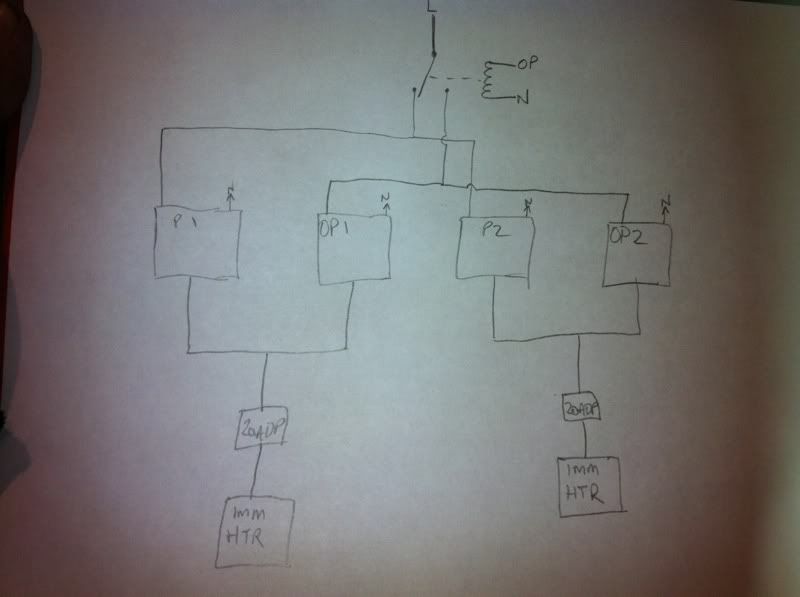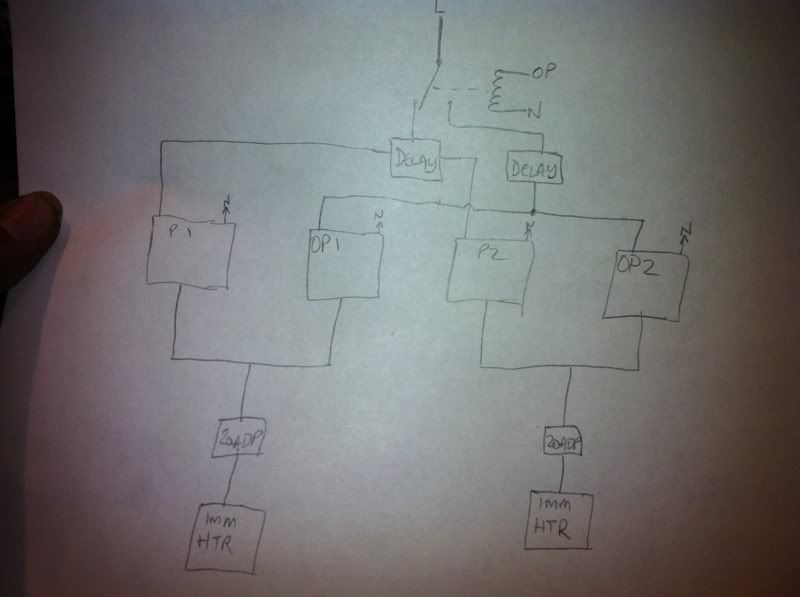Hello all.
I've got a system in a house that controls two immersion heaters.
It is just a relay energised from the off peak supply that switches either the peak or the off peak contactors contactors on.
The problem we have is when the OP supply switches on or off, the set of contactors coming on are switching in quicker than the ones going off are dropping out so momentaarily both the peak and OP supplies are connected together causing RCDs to trip.
I'm just after a simple device that could be fitted to stop this happening.
The control relay is just an 8 pin plug in jobbie.
I was wondering if theres something like a relay that moves slowly so that the first contactors can drop out before the others are energised.
Here's a sketch

thanks
I've got a system in a house that controls two immersion heaters.
It is just a relay energised from the off peak supply that switches either the peak or the off peak contactors contactors on.
The problem we have is when the OP supply switches on or off, the set of contactors coming on are switching in quicker than the ones going off are dropping out so momentaarily both the peak and OP supplies are connected together causing RCDs to trip.
I'm just after a simple device that could be fitted to stop this happening.
The control relay is just an 8 pin plug in jobbie.
I was wondering if theres something like a relay that moves slowly so that the first contactors can drop out before the others are energised.
Here's a sketch

thanks



